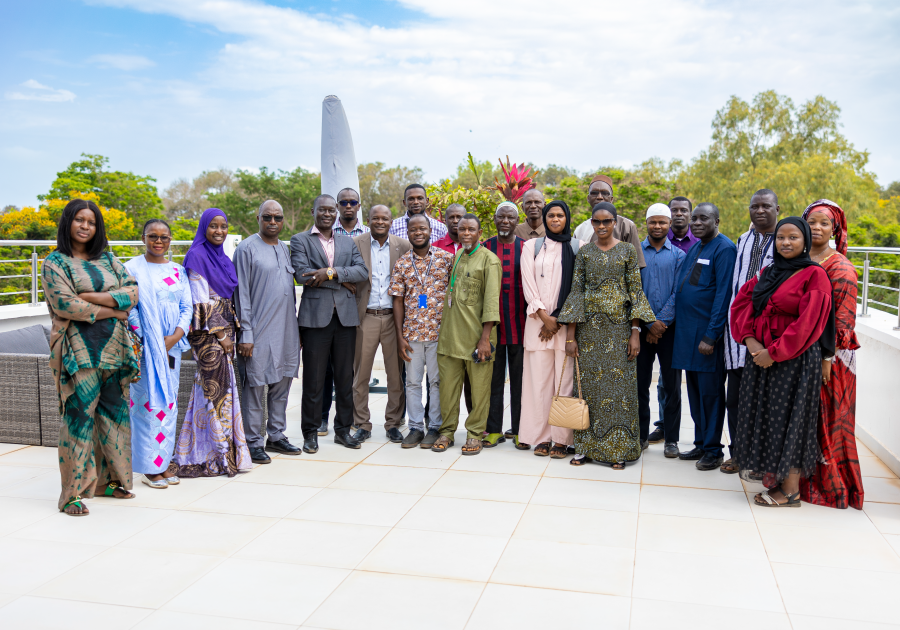
DiGES Project Launch group photo
The Medical Research Council Unit The Gambia at the London School of Hygiene and Tropical Medicine (MRCG at LSHTM), in collaboration with the National Nutrition Agency (NaNA) and Alliance of Bioversity and CIAT (Senegal),launched the DiGES project together with key stakeholders in government ministries, departments, institutions, farmer associations and NGOs.
The 24-month project is supported by the Science for Africa (SFA) Foundation under the Grand Challenges Africaprogram call on African Climate and Agriculture Adaptation. Current consumption of fruits and vegetables in The Gambia are below the 400g/person/day level recommended by the World Health Organisation for healthy eating. With this support from the SFA Foundation, the DiGES team will work with partners to promote the production and consumption of fruits and vegetables which are resilient to climate change.
Speaking to Gambian food systems policymakers and partners at the launch, Kris Murray, Professor in Environmental Change and Health and one of the co-investigators of the project, shared an overview of the Unit’s Nutrition and Planetary Health Theme, which explores the connections between nutrition, health, and environmental sustainability.
Abdou Aziz Ceesay, Head of Social and Behavioural Change Communication (SBCC) at National Nutrition Agency (NaNA), underscored the importance of the project's approach to local agriculture and its role in adapting to climate change.
“The collaboration with MRCG at LSHTM on the DiGES project will significantly impact the food system in The Gambia. The country will have evidence on not only the available types of fruits and vegetables including wild fruits, but also their nutritional and health benefits”, he stated.
Dr Zakari Ali, a Research Fellow, and Principal Investigator for the DiGES project, pointed that “sustainable food systems are a key priority research area for the Nutrition and Planetary Health Theme at MRCG. Over the past four years, we have been working to enhance our food systems sustainability research portfolio which the current DiGES project contributes to”.
In 2023, the Unit concluded a three-year Wellcome Trust funded collaborative project – Food Systems Adaptation in Changing Environments in Africa (FACE-Africa) which focused on the wider food system challenges in The Gambia. The DiGES project builds on this work by addressing the inadequate fruits and vegetables production and consumption gaps identified by the FACE-Africa project.
The DiGES project will work with community women gardeners who produce the vast majority of vegetables in the country to understand climate-related challenges and opportunities adoption of climate smart agriculture techniques for increasing domestic production.
If you enjoyed this article and would like to build a career in global health, we offer a range of MSc programmes covering health and data, infectious and tropical diseases, population health, and public health and policy.
Available on campus or online, including flexible study that works around your work and home life, be part of a global community at the UK's no.1 public health university.
